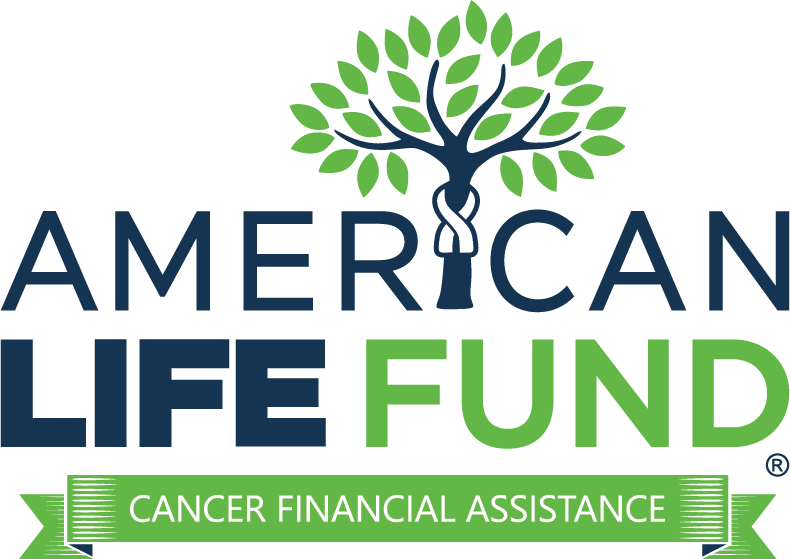Treating brain cancer involves various expensive treatments, with costs varying based on the type of treatment, the cancer stage, and the treatment location. Surgery can range from $50,000 to $150,000, while radiation therapy might cost between $5,000 and $50,000. Chemotherapy sessions typically run from $3,000 to $5,000 each. Newer treatments such as targeted therapy and immunotherapy often cost more than traditional methods.
Besides direct treatment costs, patients must consider indirect expenses like lost wages and travel costs. While insurance may cover many of these costs, the out-of-pocket expenses can still be significant, depending on the specifics of the insurance plan and the required treatments.
Understanding Brain Cancer
Brain cancer, also known as intracranial tumor, refers to the abnormal growth of cells within the brain. Several types of brain cancer include gliomas, meningiomas, pituitary tumors, and medulloblastomas. The treatment approach depends on factors such as the type, location, tumor stage, and the patient’s overall health.

Treatment Options For Brain Cancer
1. Brain Surgery
Surgery plays a crucial role in the treatment of brain cancer. It involves removing as much of the tumor as possible to alleviate symptoms, reduce its size, and potentially eliminate cancerous cells. The cost of brain cancer surgery can vary significantly based on factors such as the complexity of the procedure, surgical team fees, and hospital charges.
2. Radiation Therapy
Radiation therapy uses high-energy beams to target and destroy cancer cells. It can be delivered externally or internally through stereotactic radiosurgery or brachytherapy. The cost of radiation therapy depends on the number of sessions, the type of equipment used, and the treatment facility.
3. Chemotherapy
Chemotherapy involves using drugs to kill cancer cells or slow down their growth. It can be administered orally, intravenously, or directly into the cerebrospinal fluid. The cost of chemotherapy varies based on the drugs used, treatment duration, and supportive care needed.
4. Targeted Therapy
Targeted therapy uses drugs targeting cancer cells while minimizing damage to healthy cells. These therapies can be more expensive than traditional chemotherapy, but they may offer improved outcomes for certain types of brain cancer.
5. Immunotherapy
Immunotherapy aims to enhance the body’s immune system to fight against cancer cells. While it has shown promising results in some cases, the cost of immunotherapy can be high, and access may be limited depending on the availability of specific treatments.
6. Palliative Care
Palliative care focuses on improving the quality of life for individuals with brain cancer by managing symptoms and providing emotional support. It is an essential component of comprehensive brain cancer treatment and can help alleviate the physical, emotional, and financial burdens associated with the disease.
Brain Cancer Statistics
The National Brain Tumor Society stated that approximately 700,000 people in the United States live with a primary brain tumor.
If current rates continue, it is estimated that 88,970 more will be diagnosed in 2022. While brain tumors can differ in severity and effect, they invariably change everything for the patient and their loved ones.
The Benefits of Early Diagnosis
Early diagnosis is critical for brain cancer patients. The earlier the cancer is found, the more likely treatment will be successful. Early diagnosis also allows patients to begin treatment sooner, which can help improve outcomes and cost-effectiveness.
Even if the cancer cannot be cured, early diagnosis allows patients to take steps to preserve their quality of life. Therefore, it is important for people to be aware of the symptoms of brain cancer and to see a doctor if they experience any changes in their health. With early diagnosis, brain cancer patients may enjoy a longer and better quality of life.
Brain Cancer: Direct And Indirect Costs
Brain cancer costs can be divided into two main categories: direct and indirect.
Direct costs are related to the disease and its treatment, such as medical bills, hospital stays, prescriptions, and surgeries.
Indirect costs are not directly related to the disease or its treatment but take a toll on patients and their families. Indirect costs could be lost productivity at work, transportation, and childcare expenses.
A study published in the journal Cancer found that brain cancer patients and their families bore a significantly higher economic burden than those affected by other types of cancer. Brain cancer patients had the highest indirect costs, averaging $64,790 per year.
This is likely because brain cancer patients often require extended time off from work and more frequent and expensive transportation costs. They may also need outside help to care for their children or other family members.
Factors Influencing Treatment Costs
Several factors contribute to the overall cost of brain cancer treatment:
1. Stage And Type of Brain Cancer
The stage and type of brain cancer significantly impact the treatment approach and associated costs. Advanced-stage cancers often require more extensive treatments and ongoing care, increasing expenses.
2. Location And Facilities
Treatment costs can vary based on geographical location and the healthcare facility chosen. Urban areas and specialized cancer centers may have higher treatment costs than rural or community hospitals.
3. Healthcare Professional Fees
Fees for healthcare professionals, including surgeons, oncologists, radiologists, and pathologists, can significantly contribute to the overall cost of brain cancer treatment.
4. Additional Medications And Supportive Care
In addition to the primary treatment modalities, patients may require medications, supportive care, and rehabilitation services. These additional expenses can contribute to the overall cost of treatment.
5. Insurance Coverage
Insurance coverage plays a crucial role in managing the financial burden of brain cancer treatment. The type and extent of coverage, including deductibles, co-pays, and out-of-pocket limits, can significantly affect the patient’s financial responsibilities.
6. Clinical Trials And Research Studies
Participating in clinical trials and research studies can provide access to innovative treatments at reduced or no cost. However, not all patients may be eligible for these opportunities, and the availability of trials can vary.
Brain Cancer Outlook
According to the American Society of Clinical Oncology, The 5-year survival rate for people in the United States with a cancerous brain or CNS tumor is almost 36%. The 10-year survival rate is almost 31%.
Age is a factor in general survival rates after diagnosing a cancerous brain or CNS tumor. The 5-year survival rate for people younger than 15 is about 75%.
While survival rates aren’t definitive, they are based on several conditions, such as brain or spinal tumor type. Have a conversation with your physician about what factors play into your prognosis.
Remember that the statistical data on how many people survive brain tumors is only an estimate. The information comes from yearly numbers of people living in America with this tumor. Also, specialists reassess these survival statistics every five years.
This means the current guess may not reflect any medical advancements made within the past five years concerning diagnosis or treatment methods for a brain tumor. If you have concerns, talk to your physician about this matter.

Treatment Options For Brain Cancer
There are various types of treatment available for brain cancer. The best type for you will depend on your tumor’s stage, location, and overall health.
The most common treatments are surgery, radiation therapy, and chemotherapy. Some patients may also receive targeted therapy or immunotherapy.
Treatment Costs For Brain Cancer
In the U.S., brain tumor surgery costs between $50,000 and $150,000. This range depends on how complex the surgery is, the type of hospital, and your insurance. For cheaper options, some people go to countries like India, Thailand, or Mexico for surgery. Always check with your doctors and insurance for the most accurate cost. The costs associated with each type of treatment will vary depending on the specific procedure, location, and tumor severity.
For example, a craniotomy (a brain surgery to remove the tumor) can cost anywhere from $30,000 to $100,000. Meanwhile, radiation therapy can cost between $5000 and $50,000, while chemotherapy can cost $3000 to $5000 per treatment session.
In some cases, health insurance will cover the costs of treatment. However, many patients find that their insurance does not cover all of the costs associated with brain cancer treatment and are left with significant out-of-pocket expenses.
Monthly Brain Cancer Treatment Cost Estimates
If you are wondering how much your brain cancer treatment will cost every month, here is a breakdown of some of the most common expenses:
-Brain Surgery Cost: $3000-$100,000
-Radiation therapy: $1000-$5000 per month
-Chemotherapy: $500-$3000 per month
-Targeted therapy: $2000-$5000 per month
-Immunotherapy: $3000-$5000 per month
The following are just estimates since your actual expenses will be determined by the sort of treatment you get, where you live, and whether or not you have insurance. Make sure to discuss the anticipated costs of your therapy plan with your doctor.
Total Cost of Care
The American Cancer Society estimates that the average monthly cancer care cost of brain cancer treatment is more than $8,000.
Health Insurance
Health insurance typically covers brain cancer treatment, although some plans may not cover specific medicines or treatments. Out-of-pocket costs for brain cancer treatment for patients with health insurance typically include doctor visits, lab tests, prescription drug copays, and coinsurance rates of 10% to 50% for surgery and other procedures. These costs can quickly exceed the yearly out-of-pocket limit.
On the other hand, for patients with brain cancer without health insurance, treatment regimens might cost $50,000-$150,000 or more per year, depending on the type and length of treatment.

Brain Surgery Phase Costs Estimates
- The initial phase of treatment for brain cancer is typically surgery.
- The costs associated with this phase of treatment can vary widely depending on the type of surgery required and the location and severity of the tumor.
- A craniotomy (a surgery to remove a brain tumor) can cost anywhere from $30,000 to $100,000.
Radiation Therapy Costs Estimates
- The next phase of treatment is usually radiation therapy. The costs associated with this phase of treatment can vary greatly depending on the type, location of radiation therapy, and tumor severity.
- Proton beam radiation therapy can cost between $30,000 and $200,000.
- Gamma knife radiation therapy can cost between $100,000 and $250,000.
Chemotherapy Costs Estimates
- The last phase of treatment is typically chemotherapy. The costs associated with this treatment can vary depending on the chemotherapy required and the tumor size.
- Oral chemotherapy can cost between $2000 and $5000 per month.
- Intravenous chemotherapy can cost between $3000 and $5000 per treatment session.
- Targeted Therapy is a newer type of cancer treatment that uses drugs to target specific genes, proteins, or the tissue environment that contributes to cancer growth and survival. This therapy can cost between $2000 and $5000 per month.
- Immunotherapy is a newer cancer treatment that uses the body’s immune system to fight cancer cells. This therapy can cost between $3000 and $5000 per month.
Finding Help Paying For Brain Cancer
When diagnosed with brain cancer, you and your family will have many things to think about. One of the most important decisions will be how to finance your treatment. Several options are available, including insurance, government assistance programs, and charitable organizations. It is important to take the time to explore all of your choices.
American Life Fund Can Help With Brain Cancer Treatment Costs
If you or a loved one are struggling with the costs of brain cancer treatments, American Life Fund can help. We offer financial assistance to brain cancer patients and their families to help cover treatment costs and other related expenses with a viatical settlement. Contact us today to learn more about how we can help you or your loved one manage the cost of brain cancer treatments.
In Summary
Although brain cancer is a serious disease, early detection, and treatment may improve the chances of survival. Brain cancer patients have several resources at their disposal.
Speak to your doctor to learn more about your treatment alternatives, government aid, and charitable organizations that may help you pay for therapy. Patients with brain cancer can fight this illness by obtaining the appropriate tools and assistance.
The financial costs of any cancer are significant; learn about the costs and benefits of early diagnosis of pancreatic cancer here.
FAQs (Frequently Asked Questions)
Does Insurance Cover Brain Surgery?
Insurance coverage for brain surgery depends on the specific insurance plan. Different plans offer varying levels of coverage, so it’s important to review your policy and understand the extent of coverage provided for neurosurgical procedures.
Can Brain Surgery Be Performed Abroad For Lower Costs?
Medical tourism is an option for individuals seeking more affordable brain surgery. However, it is crucial to conduct thorough research, ensure the quality and safety of the medical facility abroad, and consult with healthcare professionals before making such decisions.
How Long Does Brain Cancer Treatment Last?
The duration of brain cancer treatment varies depending on the type and stage of cancer, treatment modalities used, and individual response. Treatment may span several months or longer, including follow-up care.
Can Brain Cancer be Prevented?
There is no known way to prevent brain cancer entirely. However, adopting a healthy lifestyle, avoiding exposure to radiation and harmful chemicals, and wearing protective headgear in certain situations may reduce the risk.
Are There Alternative Treatments For Brain Cancer?
In addition to conventional treatments like surgery, radiation therapy, and chemotherapy, alternative and complementary therapies such as acupuncture, herbal remedies, and mind-body practices may be used as supportive measures. It is essential to discuss these options with healthcare professionals.
How Can I Find a Skilled Brain Surgeon at an Affordable Cost?
To find a skilled brain surgeon at an affordable cost, consider seeking referrals from trusted healthcare professionals, researching hospitals and surgeons with a good reputation, and exploring options for negotiating the fees or accessing financial assistance programs.





